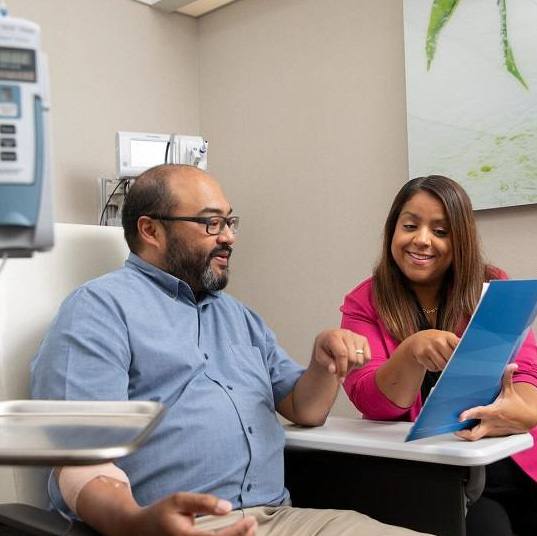Environmental exposures can accumulate in your body from the air you breathe, the food you eat, products you touch, water you drink, and more. These sometimes-harmful exposures have the potential to interact with each person's genes to influence health. The measure of all exposures of a person in their lifetime, and the effect of those exposures on health is called "the exposome."
Journalists: Broadcast-quality video (1:18) is in the downloads at the end of this post. Please courtesy: "Mayo Clinic News Network." Read the script.
"We have been able to study some of those in the past. For example, we know how our smoking or alcohol, or some forms of diet may interact with us. But given that there are millions of these exposures, which were exposed to them every day, we need better and more systematic studies to truly understand what this means to our health," says Dr. Konstantinos Lazaridis, director of Mayo Clinic's Center for Individualized Medicine.
Dr. Lazaridis believes the exposome is the next frontier in individualized medicine and that exposome research will help to understand the causes and prevention of various diseases.
"What the exposome brings forward is the ability to have methodologies, which are scalable, to measure exposures in our own tissues," he says.
Exposures don't always have a negative effect on health.
"We found that some of these untargeted chemicals are more prevalent in healthy people compared to patients (with) different diseases. So identification of those elements will be critical because (it) may protect us from disease," says Dr. Lazaridis.
Learn more about Mayo Clinic's Center for Individualized Medicine's trailblazing exposome research here.







